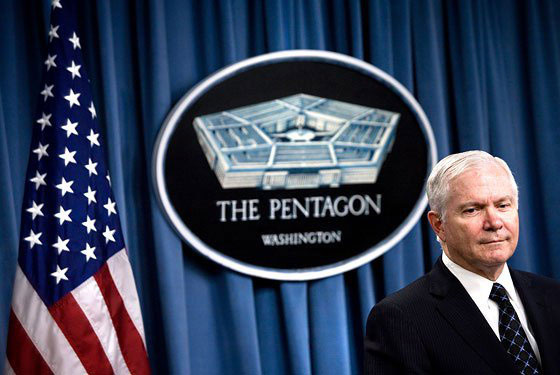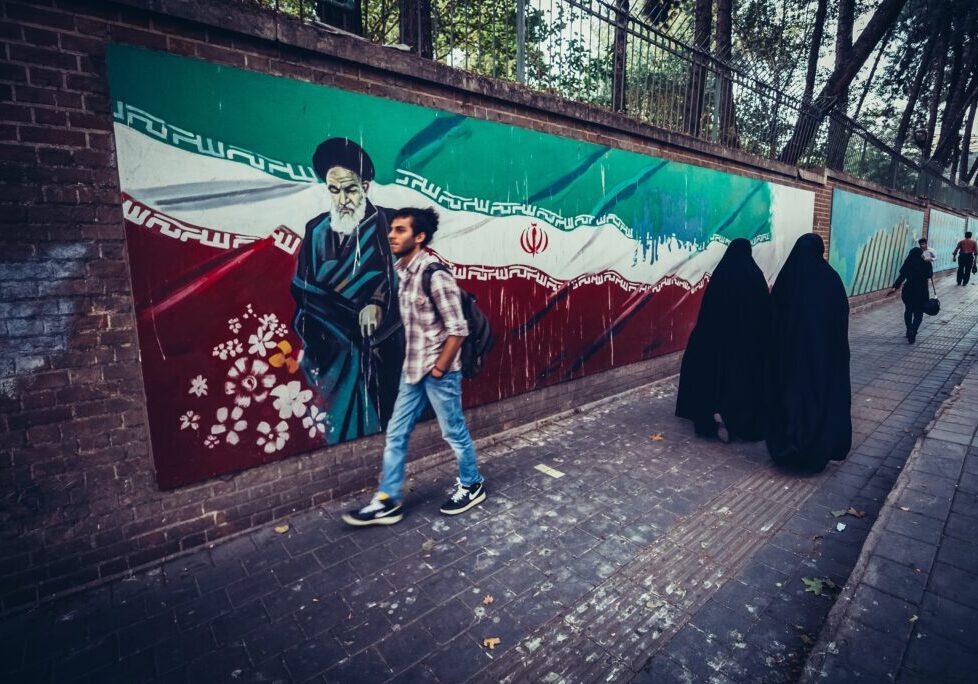Australia/Israel Review
The Biblio File: The Civil Servant and the Insurgents
Mar 20, 2014 | Paul Monk

Duty: Memoirs of a Secretary at War
Robert M Gates, Knopf, January 2014, 640 pp. , $35.00.
Paul Monk
When the memoirs of Robert Gates were released in Australia, in mid-January, much was made of his alleged criticisms of US President Barack Obama. Gates was a holdover from the Bush Administration and a lifelong Republican, as well as the former head of the CIA; so those already inclined to be critical of Obama – or for that matter inclined to leap to his defence – might be expected to jump on any criticism of the President by his former Secretary of Defence.
Yet what emerges unequivocally from the memoir is not Gates’s criticism of Obama, but his lavish praise of the man. This needs to be registered forcefully, if the criticisms (which have to do chiefly with the Defence budget and the withdrawal from Afghanistan) are to be kept in perspective.
It’s important to remember that Gates had been a career CIA man between 1968 and 1993, rising through its ranks and working, for a while, also on the National Security Council. He worked under Presidents Johnson, Nixon, Ford, Carter, Reagan, George H. W. Bush and Clinton. He then retired, in 1993, writing a memoir – From the Shadows – published in 1996. For a decade he enjoyed a different life, becoming President of Texas A&M University in 2002, but was called back into the civil service by President George W. Bush, in late 2006.
Against this background and his Wichita, Kansas Republican upbringing, it is striking to find Gates writing what he did about Obama as a man and as a decision-maker, on pp. 299-300:
Obama was the most deliberative president I worked for. His approach to problem solving reminded me of Lincoln’s comment on his approach to decision-making: ‘I am never easy when I am handling a thought, till I have bounded it north, and bounded it south, and bounded it east and bounded it west.’… I rarely saw him rush to a decision when circumstances allowed him time to gather information, analyze and reflect. He would sometimes be criticised for his ‘dilatory’ decision-making, but I found it refreshing and reassuring… When the occasion demanded it, though, Obama could make a big decision – a life and death decision – very fast….I never saw anyone who had not previously been an executive – and especially someone who had been a legislator – take so quickly and easily to making decisions and so relish exercising authority…
I always thought Obama was ‘presidential’. He treated the office of the presidency with respect… He was a man of personal integrity and, in his personal behavior – at least to the extent that I could observe it – he was an excellent role model… I often wished both Bush and Obama would be less partisan, but clearly the political world had changed since I retired the first time, in 1993. I thought Obama was first rate in both intellect and temperament. You didn’t have to agree with all of his policies to acknowledge that.
That is a long quotation for a review, but it demonstrates not only that Gates was not a partisan Republican sniping at Obama; but also his more general commitment to non-partisan thinking, judgment and service to country. The relentless personal attacks on successive US presidents in recent decades, from both sides of politics, have not served America well. Gates, however, did serve America well and his memoir is a study in what that means.
Duty is one of those books which needs to be read alongside of or in the context of several others in the effort to gain clear perspective. One thinks of the memoirs of his predecessor, Donald Rumsfeld, Known and Unknown: A Memoir (2011) and of President George W. Bush Decision Points (2010); or Bob Woodward’s books on Bush at war and Obama at war.
But the book that seems to me to best complement Duty is Fred Kaplan’s The Insurgents: David Petraeus and the Plot to Change the American Way of War – primarily because, by Kaplan’s account, Gates became “the insurgent in the Pentagon” as Secretary of Defence.
The “insurgents” were a small number of military officers, chiefly graduates of West Point’s social sciences and humanities department (SOSH) who took an interest in the theory of counter-insurgency in the 1980s and 1990s, then revived it – against strenuous mainstream resistance – for application in Iraq and Afghanistan from 2006-07.
This intersects with Gates’s memoir because Gates is incomparably more critical of the Pentagon, White House staffers and the Congress than he ever is of Barack Obama. He took over from Rumsfeld at a time when the war in Iraq had become a debacle, while the one in Afghanistan had become neglected. He was stunned to find that senior echelons of the military and many others in the Pentagon regarded these wars as ephemeral sideshows, with the consequence that they were not paying attention to what was required to fight them effectively.
Currently, the Abbott government here in Australia is uncertain how to go about reviewing, reforming and running the Department of Defence, with a mere 100,000 military and civilian personnel amidst a peace-time environment. Imagine the task which confronted Gates in 2006: a gargantuan organisation with three million personnel, a budget in the many hundreds of billions, two prolonged, increasingly costly and controversial wars and enormous Congressional inertia and pork-barreling around defence procurement.
It is his impressively candid account of these matters that chiefly gives Duty its weight and its considerable value. All the more so because Gates had not been a career Defence bureaucrat or military man and had not sought the job as Secretary of Defence. He accepted it and stayed on solely out of a sense of – duty.
There are countless matters of detail in the book’s 600 or so pages, but the most striking thing about it as a whole is the manner in which Gates so consistently exhibits a trenchant commitment to the public good. As I read the book, I found myself thinking that it could almost be made required reading for anyone setting out to become a serious civil servant.
Inevitably, the Iraq war bulked largest in his preoccupations throughout his time at the Pentagon. His second chapter is titled “Iraq, Iraq, Iraq”. His judgment of the matter is lucidly set out early:
I knew for sure that whatever people had thought about the decision to go to war in Iraq, at this point (late 2006) we could not fail. A defeat of the US military and an Iraqi descent into a vicious civil war that likely would engage other countries in the region would be disastrous, destabilising the region and dramatically boosting Iran’s power and prestige. In the months of furious criticism of Bush’s surge that would follow, I never heard the critics address the risk that their preferred approach of a precipitous withdrawal would, in fact, lead to these very consequences.
He adds that, with a view to retrieving the situation, he not only approved the surge itself, but recommended that General George Casey, the commander in Iraq, be replaced by General David Petraeus, as “the right man” for the job.
This is where Duty intersects with The Insurgents. The latter tells in gripping detail the story of those military officers, foremost among them David Petraeus, who had spent their professional careers thinking about and arguing for a US capacity for “stabilisation operations” or “COIN” of the kind that was crucial to the considerable success of the surge in turning the situation in Iraq around in 2007.
My own doctorate in International Relations, written in the mid-1980s, centred on US counter-insurgency operations throughout the Cold War – in the Philippines, Vietnam and El Salvador, in particular. The Insurgents shows that the young David Petraeus and a number of others were immersing themselves in the same topic at the same time. Had I found my way to the United States in the late 1980s to do a post-doc, I might well have found myself networked with this circle of thinkers – as Australia’s own Lieutenant Colonel David Kilcullen did 20 years later.
I didn’t do that, but reading The Insurgents alongside Duty brought back countless insights and interests of my own from the 1980s and threw into high relief the importance of critical thinking about force structure, strategy, tactics, policy and operational planning at every level – and how it is, again and again, subverted by institutional inertia, institutional amnesia and perverse incentives.
The two books, taken together, are a wonderful study of all this. Gates’ memoir is a reminder that it is still possible to be a genuine, professional, non-partisan civil servant. His praise of Obama’s qualities of deliberation is a reminder that such qualities are vital – not only in a chief executive, but right down the chain of command.
The story of The Insurgents shows some of America’s best and brightest military officers exhibiting those qualities in the schools, training grounds and combat zones to which they were assigned. Reading the two books left me with the belief that as many people in our own national security institutions as possible should read both books.
Dr. Paul Monk is Managing Director of Austhink Consulting and previously served for six years at the Defence Intelligence Organisation as an analyst focusing on East Asia. He is a widely published commentator on public affairs and is the author of four books, including most recently, The West in a Nutshell: Foundations, Fragilities, Futures (Barrallier Books, 2009).
Tags: Middle East






